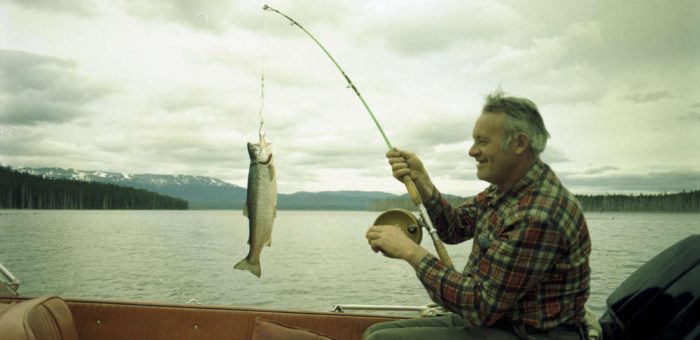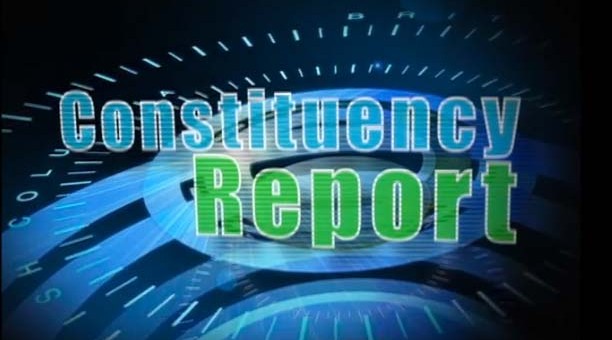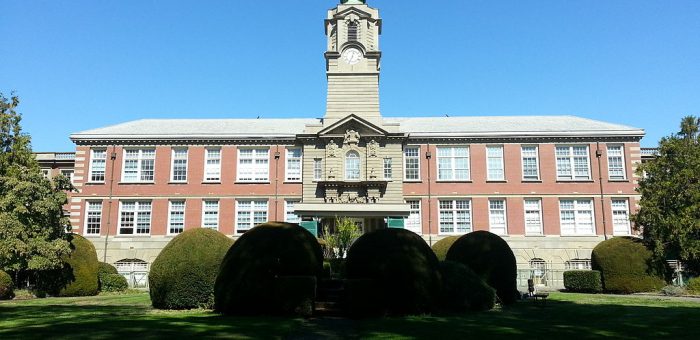Community Blog
Bill M231 — Ensuring municipalities actually have residents!
Today in the legislature I introduced Bill M231 — Local Government Amendment Act.
If passed, this Bill will ensure that municipalities in BC cannot be incorporated without first ensuring that there are residents actually living in the area at the time of incorporation. This might seem like an unnecessary bill as it would seem obvious that a municipality, governed by a Mayor and two Councillors, should actually have people and property to govern. Well that’s not the case in the wild west of British Columbia politics.
Back in 2012, the BC Liberals amended The Local Government Act to allow mountain resort municipalities to be created that have no residents. In particular, this was done in support of the proposed Jumbo Glacier Mountain resort that I have written about earlier.
Given opposition to the resort by the Ktunaxa Nation, the fact that the environmental assessment certificate has expired, and that the project has not substantially started, it seemed timely to close the loophole for good as it sets a dangerous precedence.
Below I reproduce the text and video of my introduction of the Bill.
Text of my Introduction
A. Weaver: I move that a bill intituled the Local Government Amendment Act, 2017, of which notice has been given in my name, be introduced and read a first time now.
Motion approved.
A. Weaver: I’m pleased to be reintroducing a bill intituled the Local Government Amendment Act. It’s absurd that in British Columbia today a municipality exists that has no houses, no infrastructure and no people. The Jumbo Glacier Resort is designated as a mountain resort municipality, and despite not having any people, it has a salaried, province-supported mayor and two councillors.
This government created the loophole that has allowed this municipality to exist, despite there being no residents. It was created solely for the purpose of a specific pet-project that this government wants to proceed.
This bill would close this ridiculous loophole and ensure that municipalities in British Columbia actually have people living in them.
I move that the bill be placed on the orders of the day for second reading at the next sitting after today.
Bill M231, Local Government Amendment Act, 2017, introduced, read a first time and ordered to be placed on orders of the day for second reading at the next sitting of the House after today.
Video of my Introduction
Introducing Right to Roam legislation in British Columbia
Today in the legislature I introduced a private member’s bill entitled Bill M223 — Right to Roam Act. This Bill reestablishes the rights of British Columbians to access public lands, rivers, streams, and lakes, and to use these spaces to fish, hike and enjoy outdoor recreation.
Increasingly, British Columbians are being fenced out of wild areas that have been enjoyed by the public for generations. One particularly high profile example involves public access to Minnie, Stoney and other lakes surrounded by Douglas Lake Ranch spread out over more than 500,000 acres. Approximately 365,000 acres are already crown land with full public access. But concern over access to several lakes was raised when Stoney Lake Road was suddenly gated in the late 1970s and subsequently locked in the early 1980s.
Below I reproduce the text and video of the speech I gave as I introduced the bill. I also include the accompanying media release.
Text of my Introduction
A. Weaver: I move that a bill intituled the Right to Roam Act, 2017, of which notice has been given, be introduced and read a first time now.
Motion approved.
A. Weaver: I’m pleased to be introducing a bill intituled the Right to Roam Act, 2017.
The ability to access and experience nature is a right for all British Columbians, and we must protect it. This bill will re-establish the rights of British Columbians to access public lands, rivers, streams and lakes and to use these spaces to fish, hike and enjoy outdoor recreation.
Hunting, fishing and outdoor recreation are a pivotal part of British Columbia’s heritage and form an important part of the fabric of present-day life in British Columbia. They are also vital to the understanding, conservation and management of fish and wildlife in our province.
Increasingly, however, British Columbians are being fenced out of wild areas that have been enjoyed by the public for generations.
One particularly high profile example involved public access to Minnie, Stoney and other lakes surrounded by Douglas Lake Ranch, spread out over more than 500,000 acres. Public access was prevented when Stoney Lake Road was suddenly gated in the 1970s and subsequently locked in the 1980s. This bill, which is built on a combination of B.C.’s existing Hunting and Fishing Heritage Act and Nova Scotia’s Angling Act, aims to address and prevent such conflicts.
I move that the bill be placed on the orders of the day for second reading at the next sitting of the House after today.
Bill M223, Right to Roam Act, 2017, introduced, read a first time and ordered to be placed on orders of the day for second reading at the next sitting of the House after today.
Video of my Introduction
Media Release
Weaver introduces Right to Roam Act
For immediate release
February 27th, 2017
VICTORIA B.C. – Locked gates on back roads are increasingly restricting access to wild lands in the province, making it harder for outdoors people to go hunting, fishing or hiking. A new bill tabled Monday by Andrew Weaver, Leader of the B.C. Green Party, would put a stop to that practice.
“British Columbians are increasingly being fenced out of the province’s wild lands. The ability to access and experience nature is a public right, and we must protect it,” says Weaver, who is the MLA for Oak Bay-Gordon Head. “Free public access to the outdoors is vital to people’s health and well-being, but it is also vital to the health and well-being of our environment. People protect what they know and love. If we become disconnected from our environment we risk disengaging with the fight for its future.”
In many regions of the province, the only way to access wild Crown lands is via logging roads, public back roads, or across privately owned forests and uncultivated areas. While casual public use of these accessways has not been an issue in the past, there is a growing trend of neighbouring landowners and forestry companies locking people out. Some are building fences and installing locked gates to block access altogether, others are implementing strict schedules or access fees. In extreme cases, British Columbians are getting arrested for trespassing while walking to public lakes they have been fishing for generations.
The Nicola Valley Fish and Game Club, a non-profit association dedicated to the local preservation and management of habitat and wildlife, for example, has spent years in a legal battle with the owner of the Douglas Lake Ranch over the public right to fish in public lakes..
“The Right to Roam Act aims to address and prevent conflicts like the Douglas Lake Ranch case. Nature in British Columbia should be open to all, not to just the privileged few,” says Weaver.
This Act was built off the existing BC Hunting and Fishing Heritage Act and the Nova Scotia Angling Act. It includes a few additional amendments, made with reference to a UVic Environmental Law Clinic report about enhancing public access to wild lands.
“By allowing people to cross uncultivated wild land to access public lands, rivers, streams, and lakes, the Right to Roam Act aims to re-establish the rights of British Columbians and to use these spaces to fish, hike and enjoy outdoor recreation.”
– 30 –
Media contact
Mat Wright, Press Secretary
+1 250-216-3382 | mat.wright@leg.bc.ca
Constituency Report – February 2017
Constituency Report is a public service that Shaw TV graciously offers MLAs. This month’s video is provided below.
In this issue Judy Fainstein and I reflect on the past four years and what we can expect in the coming months in the lead up to the May 2017 election.
As always, I’d be interested in your feedback on this constituency report.
Constituency Report
Fixing a Gap in Adult Education
A number of constituents have contacted me regarding the high cost of upgrading high school courses. I wrote to the Minister of Education to ask that he consider removing the barriers to educational access that his government put in place in May 2015. I received a disappointing response which failed to address the key concerns of the letter.
I subsequently wrote to the Minister of Advanced Education urging him to close a gap in coverage that the policy change had created. When government chose to end funding for high school graduates upgrading secondary courses, they forced secondary schools to charge tuition to high school graduates. This included public schools, like SIDES or The Link, which offer online classes and are well suited for academic upgrading.
Along with the policy change government introduced the Adult Upgrading Grant, which is administered by the Ministry of Advanced Education and is meant to provide some support for low-income students. However, this grant only covers courses taken at post-secondary institutions and does not include any of the secondary schools which now have to charge tuition to high school graduates. I asked the minister to extend the grant to a more diverse group of schools, in particular to secondary schools which focus on distributed learning and currently have high rates of enrollment for students upgrading courses.
A non trivial component of the government’s surplus has come at the expense of those who can least afford it. Cuts to those seeking to upgrade their high school education to pursue work and educational opportunities do nothing more than perpetuate the poverty trap. British Colombians deserve a government which will make education more accessible for all British Colombians.
Below I reproduce the text of my letter and I will share the response when it is forthcoming.
Text of the Letter
February 12, 2017
Honourable Andrew Wilkinson
Minister of Advanced Education
PO Box 9080 Stn Prov Govt
Victoria BC
V8W 9E2
Canada
Dear Minister Wilkinson,
I’m writing to you in light of concerns that constituents have brought to my attention regarding the high cost of upgrading high school courses.
As you know, in 2015, the provincial government ended funding for students upgrading high school courses, if they have already graduated. Since that policy change, returning students now face a fee, generally $500-$550 per course, to take grade 11/12 course. These fees place an undue burden on individuals, and their families, as they work to expand their professional and academic opportunities.
I have learned that at the South Island Distance Education School (SIDES) in Victoria alone, there are hundreds of students who are unable to afford the fees of upgrading their courses, and thus remain on the waitlist. This does not include the many who don’t even apply to join the waitlist, discouraged from doing so when they learn the cost.
I have written the Minister of Education about my concerns with this policy and am now writing you to outline a specific gap that it has created.
The Ministry of Education still funds high school courses for students who have not graduated. The Ministry of Advanced Education provides support for low-income students who have graduated and are taking high school level courses at one of nineteen post-secondary institutions.
There is, however, no support for students who have graduated high school and are pursuing academic upgrading through institutions other than post-secondary schools. For example, high school graduates attending public schools in Victoria, like SIDES or the Link, are not eligible for tax deductions, reimbursement under RESPs, or the Adult Upgrading Grant.
These two schools specialize in providing a flexible academic environment to accommodate the needs of students. With many returning students are juggling career and family obligations, this an ideal environment for them to return. Attending a school focused on secondary education can also be less jarring return to the education system for many students.
I find it difficult to understand why two students of similar income levels could take equivalent courses that have comparable prices and that only one would receive government support.
As your ministry oversees the Adult Upgrading Grants, I ask that you increase the number of institutions which are approved to administer them. Specifically, I ask that you give public schools that have a focus on distributed learning the ability to authorize these grants.
If you feel that this falls outside the purview of your ministry, then I urge you to coordinate with the Minister of Education and develop a funding program which would achieve the same results.
I fully believe that we should all fund students who pursue academic upgrading, whether or not they’ve graduated. British Columbians have been promised a high school education, and there is more to that than just a diploma. Whether or not someone has graduated, they should be supported as they flesh out their secondary education, seeking to open their mind or opportunities.
At the very least, this government should, fill the gap that has been created by its policy change and provide the Adult Upgrading Grant to a more diverse group of institutions, including specialized secondary schools.
Sincerely,
Andrew Weaver
MLA, Oak Bay-Gordon Head
Reintroducing a Bill to Lower the Voting Age to 16 in British Columbia
Today in the legislature I reintroduced a bill that if enacted would lower the voter age in British Columbia from 18 to 16. The new name of the bill is Bill M220 — Election Amendment 1, 2017.
Those who have been following this site will know that last year, I initiated a conversation on whether or not we should reduce the voting age to 16. The response on social media was wonderful and we received many emails on the topic.
It turns out that this conversation is not only happening now in BC. Prince Edward Island held a referendum in the fall on electoral reform. The eligibility to vote will be extended to youth aged 16 and 17 in this referendum.
Below please find reproductions of both the text and video of the introduction of my bill. In addition, I reproduce the accompanying press release.
Text of Introduction
A. Weaver: I move that a bill intituled the Election Amendment Act, 2017, of which notice has been given, be introduced and read a first time now.
Motion approved.
A. Weaver: In this bill I’m introducing today, I would propose lowering the voting age to 16 in the province of British Columbia. There’s a lot of evidence to suggest that the earlier in life a voter casts their first ballot, the more likely they are to develop voting as a habit throughout their life.
It’s also a common misconception that 16-year-olds are not as informed on and engaged in political issues as older voters. The research, however, says otherwise. These young citizens of British Columbia are old enough to drive, pay taxes and sign up for the military. In fact, the notion of taxation without representation is one that is not founded within our democracy. We require representation with taxation. Austria, Argentina, Brazil, Germany and parts of the U.K. have extended voting rights to 16-year-olds, and it’s time British Columbia do the same.
I move that the bill be placed on the orders of the day for second reading at the next sitting of the House after today.
Madame Speaker: Hon. Member, was that No. 1 or No. 2?
A. Weaver: That was No. 1. I’m sorry. Thank you, hon. Speaker.
Madame Speaker: No worries.
Bill M220, Election Amendment Act 1, 2017, introduced, read a first time and ordered to be placed on orders of the day for second reading at the next sitting of the House after today.
Video of Introduction
Media Release
Andrew Weaver introduces bill to lower the voting age in B.C.
For immediate release
February 20, 2017
VICTORIA B.C. – Today Andrew Weaver, MLA for Oak Bay-Gordon Head, re-introduced the Election Amendment Act 1, which seeks to engage youth in politics through lowering the voting age to 16.
“There is a lot of evidence that shows that if we engage our youth earlier in the political process they are more likely to develop voting as a habit for the rest of their life,” says Weaver, also the Leader of the B.C. Green Party.
“I’ve been speaking to individuals of all ages since I introduced this bill last Spring. I have heard overwhelming support for lowering the voting age.
“The decisions we make today as legislators will have a profound impact on the lives of our youth. I can’t think of a good reason why they shouldn’t have a stake in those decisions.
“It appears there is a trickle-up effect in civic participation. When youth engage, conversations around the dinner table tend to focus on politics and local issues, which results in a positive impact on voter turnout for the whole family.”
Many other jurisdictions, including Austria, Argentina, Brazil, Germany, and parts of the UK, have extended voting rights to 16-year-olds. Scotland experimented by lowering the voting age in their independence referendum. It was so successful that they subsequently permanently dropped the voting age to 16 in all Scottish Parliament and local government elections.
-30-
Media Contact
Mat Wright – Press Secretary Andrew Weaver MLA
1 250 216 3382
mat.wright@leg.bc.ca








